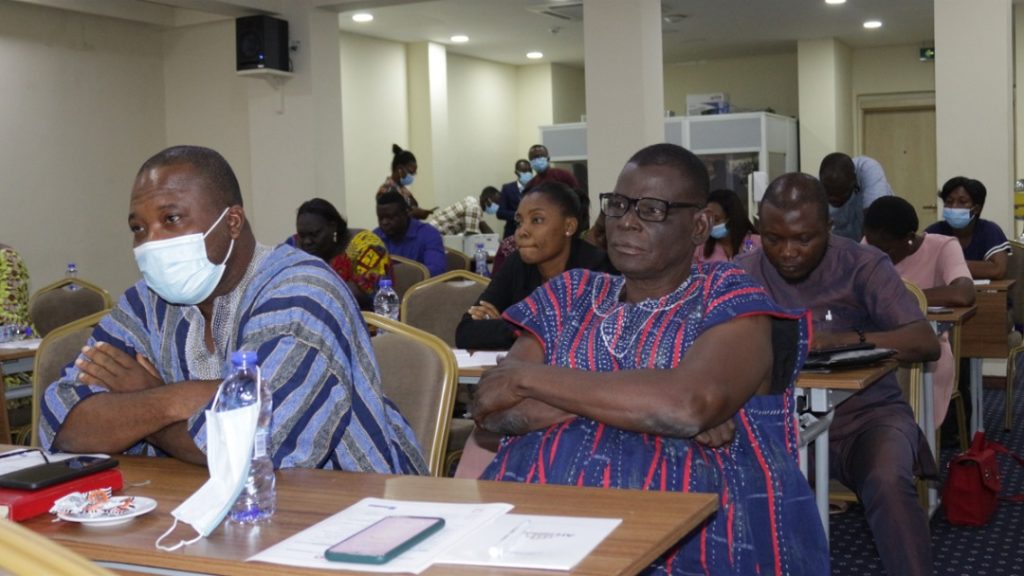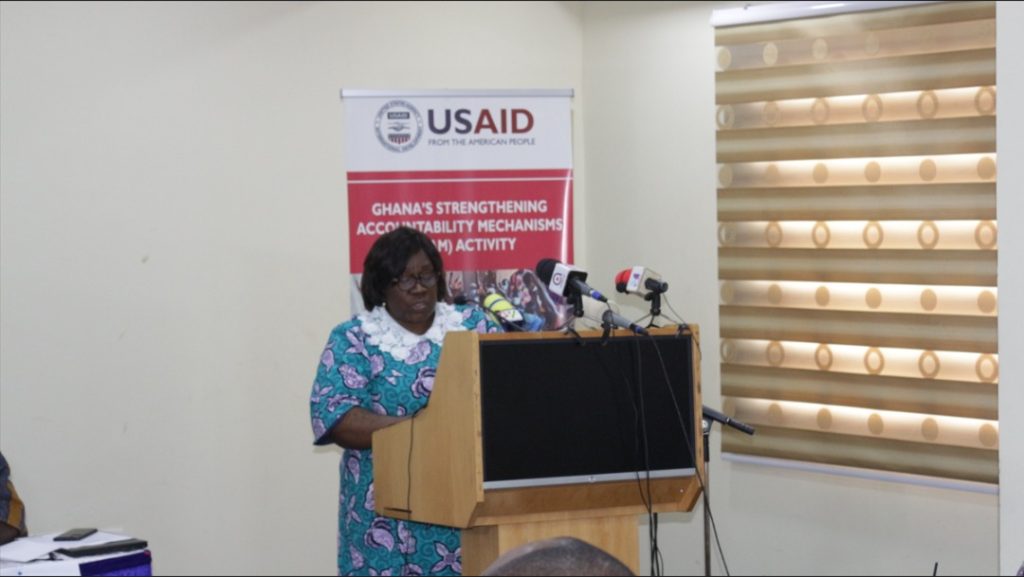By Francis Ntow
Accra, Sept 29, GNA – Dr Esther Ofei-Aboagye, a local governance expert, has called for increase in funding and effective policy implementation to make authorities deliver quality public service to citizens at the community level.
She said strengthening local institutions and empowering the people to take part in local governance would help improve accountability, transparency, and performance in capital development projects.
Capital development projects, such as schools, clinics, markets and public places of convenience, constitute the majority of district level spending and have implications for the well-being of households and communities.
Dr Ofei-Aboagye, a member of the Technical Advisory Committee of the Civil Society Coalition (CSO) on Local Governance Reforms, said: “Local governance must be re-branded to emphasise their service responsibilities and obligations to the citizenry and residents.”
Doing so, she said, was necessary because the Constitution had made provision for the citizen as the client and the owner of public resources.
It was, therefore, prudent for local representatives to be accountable to the people and ensure effective participation by all sections of the population in governance and decision-making.
Dr Ofei-Aboagye, who also is a former Executive Director of the Institute of Local Government Studies, said this at a conference held to discuss lessons and the best practices learned from the Ghana Strengthening Accountability Mechanisms (GSAM) project for a more accountable local governance system.
The eighth-year Ghana Strengthening GSAM USAID-supported project was designed to deepen and sustain responsive and accountable governance at the local level.
Dr Ofei-Aboagye noted that over the years, efforts to enhance supply side accountability had not been matched with similar levels of investment in demand side accountability.
As such, citizens are short-changed by the non-performance of service providers, corruption, disappointing results and insufficient justification for the taxes they pay.

She called on CSOs to play watch-dog role by easing, mediating and playing advocacy roles to bridge the gaps between performance and accountability.
Ms Kimberly Rosen, the USAID Ghana Mission Director, said evaluation of the programme showed that value-for-money audits on district capital projects reduced the incidence of partisan manipulation of district budgets by local politicians.
Again, there had been improvement in the engagement between citizens and their local governments, leading to enhancement in infrastructure development through the action of local CSOs.
She reaffirmed the US Government’s support for the Government of Ghana towards improving the delivery of quality services with increased accountability through partnerships with CSOs and other State agencies.
These partnerships, the Ghana Mission Director, underscored, were aimed at bringing governance to the doorsteps of the people and further enhance direct engagements between district assemblies and citizens.
Mr Samuel Boateng, Monitoring and Evaluation Specialist for the GSAM project, presented outcomes of the project, saying it was for strengthening accountable governance in various districts across the country.
He noted that feedback had proven that there were increases in responses of local authorities and service providers to citizens’ concerns.
For example, 51 per cent of the 880 community priority needs identified with GSAM support were integrated and budgeted for in the 2022-2025 Medium-Term Development Plans (MTDPs) in 50 districts – from 12 per cent in 2016.
Also, citizens’ oversight of capital development projects and social service delivery performance, including healthcare, water and sanitation facilities, had also enhanced local government transparency and accountability.
GSAM focused on the delivery of quality services with increased accountability; specifically, supporting citizens to demand responsive governance from local authorities to improve management of policy implementation for efficient service delivery.

It was implemented in 100 districts by a consortium, including CARE International in Ghana and Integrated Social Development Centre, in collaboration with the Ghana Audit Service and 25 other civil society organisations.
GNA